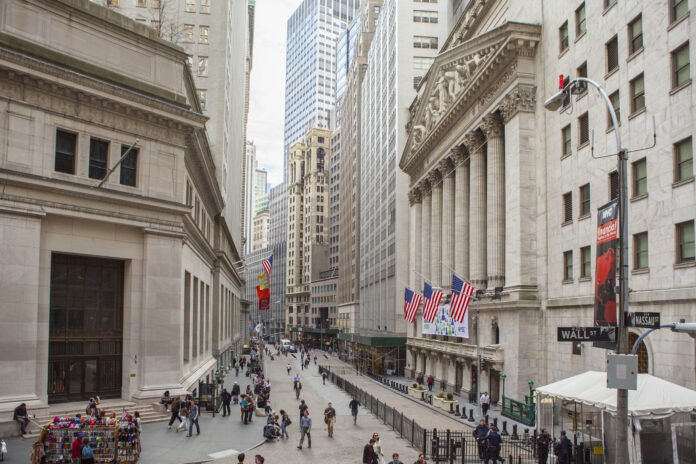U.S. stock markets ended sharply lower on Wednesday, weighed down by growing concerns over looming tariffs on automotive imports. Investors reacted with caution as the Trump administration prepared to announce new trade restrictions, sparking worries over price hikes, supply chain disruptions, and potential retaliation from global trading partners. Tech and auto stocks bore the brunt of the sell-off, with Nvidia and Tesla leading declines.
The Nasdaq Composite tumbled over 2%, reflecting the tech sector’s vulnerability to trade tensions, while the S&P 500 slid 1.13% and the Dow Jones Industrial Average dipped 0.31%. Market analysts pointed to heightened uncertainty in the auto industry, where tariffs could drive up vehicle costs and complicate production logistics. Shares of Tesla and General Motors both fell as investors weighed the broader economic consequences. “Markets hate uncertainty, especially when it comes to tariffs in the auto sector, which is already under pressure from supply chain constraints,” noted Jamie Cox of Harris Financial Group.
Semiconductor stocks were also caught in the downdraft, with Nvidia and Broadcom suffering sharp declines. Analysts warned that increased costs and potential disruptions to global supply chains could hit chipmakers hard, exacerbating existing inflationary concerns. Meanwhile, a survey of top executives revealed dwindling business optimism, with companies preparing for rising expenses linked to the anticipated trade measures. However, an unexpected rise in durable goods orders suggested some firms were stockpiling inventory ahead of the expected cost increases.
Adding to investor unease, Barclays lowered its S&P 500 year-end target from 6,600 to 5,900, citing growing market caution. So far in 2025, the index has shed 3%, while the tech-heavy Nasdaq has slumped over 7%. All eyes are now on Friday’s release of the Personal Consumption Expenditures (PCE) price index, the Federal Reserve’s preferred inflation gauge. Minneapolis Fed President Neel Kashkari acknowledged that tariffs could further fuel inflation, a factor that could influence future interest rate decisions.
Despite the broad market sell-off, some corporate developments captured investor interest. Dollar Tree shares climbed after reports surfaced that the discount retailer was close to selling its Family Dollar unit to a private equity firm in a deal valued at approximately $1 billion. Meanwhile, GameStop surged after announcing plans to adopt bitcoin as a treasury reserve asset, highlighting the ongoing intersection of corporate finance and cryptocurrency.
Stay updated on the latest market developments with DC Brief, your source for in-depth financial news and analysis.


